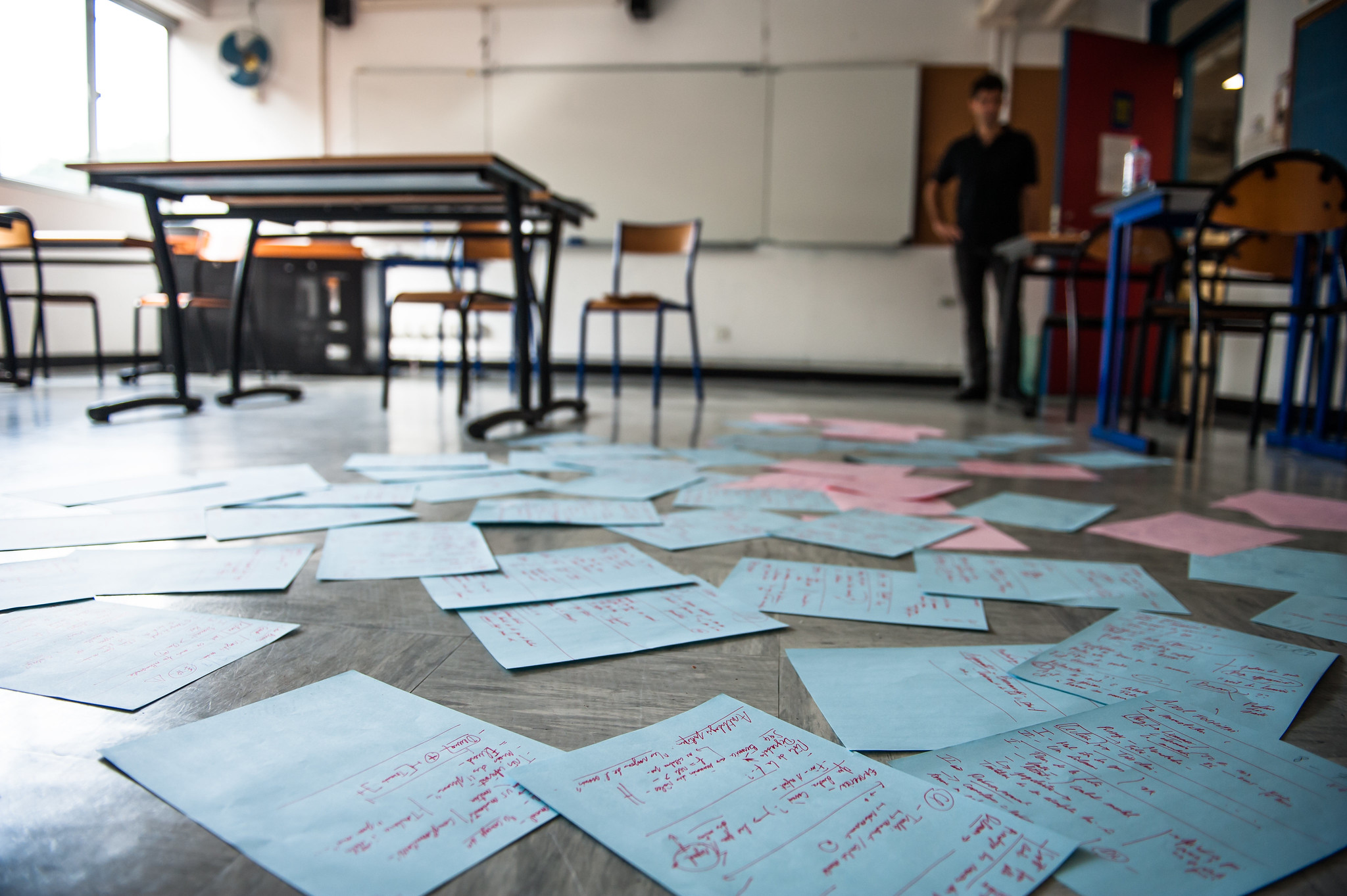One of the best aspects of the TLLP is the ability of our team members to have release time to discuss our classroom experiences, to visit other schools and classrooms and to plan for what we will do in our classrooms. During today’s meeting, we all had a level of frustration around final evaluations. Every secondary school in the board has been helping teachers to revise and update their final evaluations so that they more closely meet our vision for empowering modern learners with “informative and purposeful assessment.” This has been a rewarding but also difficult process where all aspects of our final evaluations have to be examined, compared to a set of success criteria, and then revised to be more equitable, engaging and purposeful.
This revision process is not where I had frustration, however. It is the breakdown of marks between term work (70%) and final evaluations (30%). It’s hard to articulate the reasons why this doesn’t fit a feedback-focused class. It’s like a square peg in a round hole. You can force it to make it work, but it’s not authentic. All of a sudden we are switching strategies. Traditionally, there is no feedback for a final evaluation, just the mark. So all semester, no grades are traded in exchange for the students’ work and now, for the 30%, you have to just slap a number on it.
Also, in a feedback-focused assessment classroom, these divisions between term and final are problematic. We work closely together with the students to help them progress towards the overarching learning goals. At least for me, all activity in class is “assessment for learning” and “assessment as learning.” At the end of the semester, in their portfolio, I ask students to (1) choose and reflect on artifacts that show their growth and (2) to choose and reflect on artifacts that show their highest achievement. Of course, we also keep in mind how consistent they have been with this achievement.
Then I turn around and say, "Okay, show me what you can do one more time. And this time it’s going to count A LOT. Plus, you don’t get to reflect on how well you did. It’s only my professional judgement that will determine how well you did.” I know this will sound strange to a teacher who is not “grade-less” because that is our job, really. We teach, then we judge. But in a feedback-focused class, the students judge themselves. We guide them and help them see what they might miss, but the ownership of the “grade” is the student’s.
I have an idea on how to make this final evaluation process more authentic for next semester. It’s a pretty radical idea, so I will need to think it over and chat with my mentors before I share, but I hope it will make the end-of-semester evaluation period match what happened all semester.
If you are in a feedback-focused classroom, how do you handle final evaluations?
This revision process is not where I had frustration, however. It is the breakdown of marks between term work (70%) and final evaluations (30%). It’s hard to articulate the reasons why this doesn’t fit a feedback-focused class. It’s like a square peg in a round hole. You can force it to make it work, but it’s not authentic. All of a sudden we are switching strategies. Traditionally, there is no feedback for a final evaluation, just the mark. So all semester, no grades are traded in exchange for the students’ work and now, for the 30%, you have to just slap a number on it.
 |
| Source: Thibaud Saintin |
Then I turn around and say, "Okay, show me what you can do one more time. And this time it’s going to count A LOT. Plus, you don’t get to reflect on how well you did. It’s only my professional judgement that will determine how well you did.” I know this will sound strange to a teacher who is not “grade-less” because that is our job, really. We teach, then we judge. But in a feedback-focused class, the students judge themselves. We guide them and help them see what they might miss, but the ownership of the “grade” is the student’s.
I have an idea on how to make this final evaluation process more authentic for next semester. It’s a pretty radical idea, so I will need to think it over and chat with my mentors before I share, but I hope it will make the end-of-semester evaluation period match what happened all semester.
If you are in a feedback-focused classroom, how do you handle final evaluations?
Way to leave me in suspense! I'm struggling with final eval as well. Likely to write about it soon. I agree with the fact that it doesn't fit...one thing I'm considering is having students each focus on areas they are still growing for final eval. Not sure how to easily customize 'exams,' but it seems silly for everyone to do the same assessment when they are all growing and learning at different rates. Weird.
ReplyDeleteThat's an interesting idea. If students have shown "mastery" (another problematic term...but what else do you use? Competency?) of some learning goals, do they need to do it again in the final? Maybe there are learning goals that they haven't shown how well they think they can do. (Ugh, it's late and I can't articulate my point.)
DeleteBut that still leaves the 70% and 30% question.
Yes, it does. It is hard to ignore, but one of the non-negotiate things, unfortunately. A performance task of some kind would be ideal for me. I'm thinking about a few different options. I don't like not having control over snow days...in the past I've had lab exams cancelled when we lost a couple of days in the final week of sem 1. This makes me hesitate.
Delete